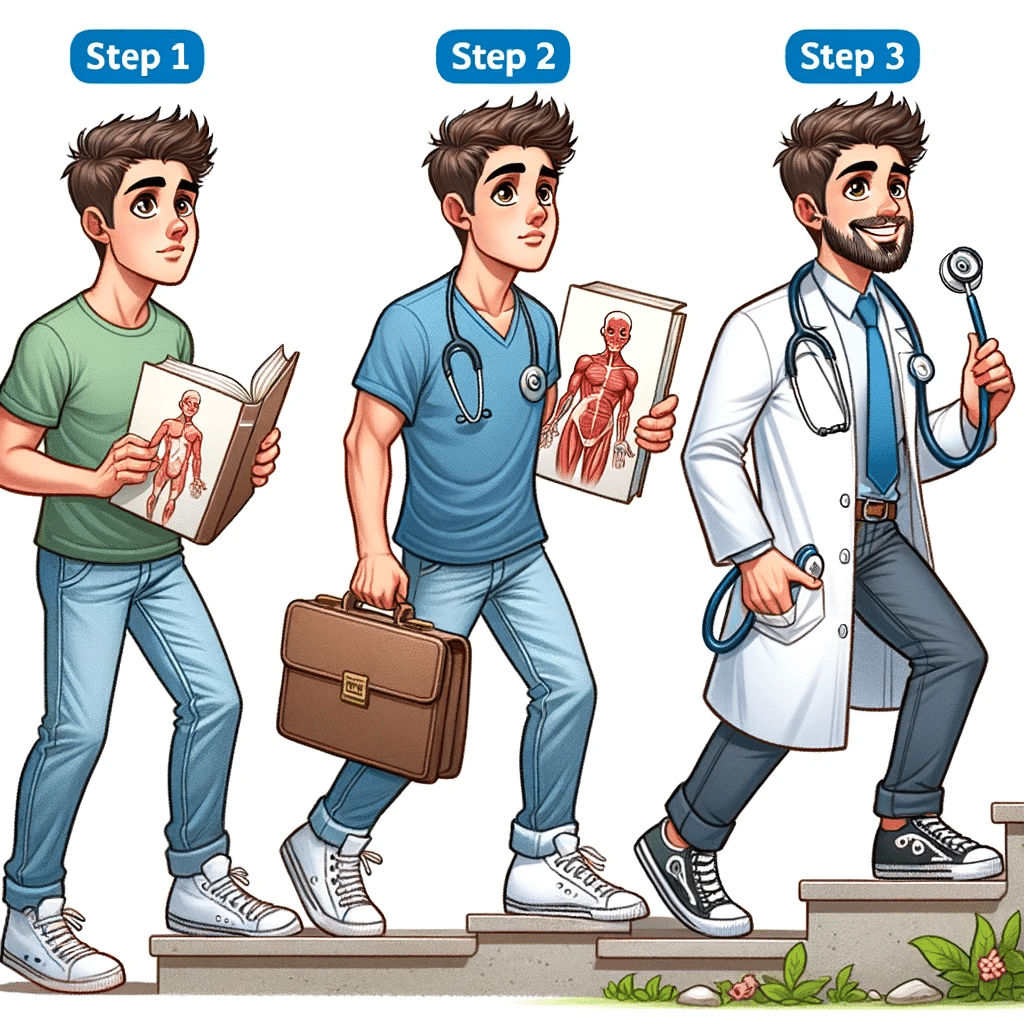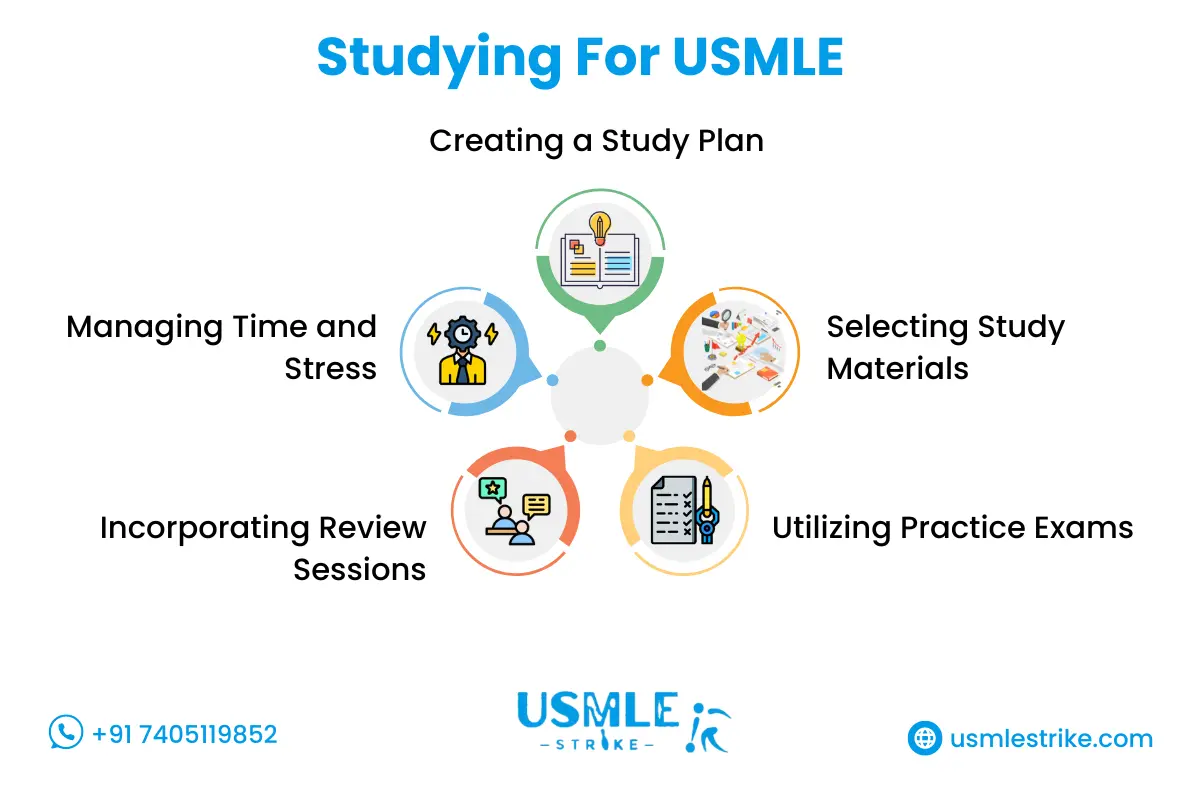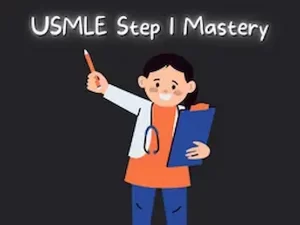Before applying for the United States Medical Licensing Examination (USMLE), it is important to know what is USMLE and why this test is taken. Firstly, studying for USMLE will help you take each part at a different stage to expand your medical career. Secondly, this test assesses a med aspirant’s mastery of the material.
International Medical Graduates (IMGs) take the USMLE to obtain a medical license in the U.S., ensuring their competencies align with American medical standards. This exam is pivotal for residency placement, with scores often influencing selection. Beyond licensing, passing the USMLE enhances an IMG’s credentials, opening doors to advanced training, fellowships, research, and academic opportunities in the U.S. while enabling broader career mobility within the nation’s diverse healthcare settings.
Understanding what is USMLE also highlights how test-taking strategies can improve your performance. These strategies help apply knowledge in a clinical setting, ensuring that an aspirant is fit to practice safe and effective medical care.
Check out The Pass/Fail Effect: A Longitudinal Study of USMLE Step 1 Performance Over a Decade.

Studying for USMLE Steps
The USMLE is divided into three steps.

- Step 1 – The United States Medical Licensing Examination (USMLE) Step 1 is a one-day test. It can be taken after or at the end of the second year of medical school. It usually emphasizes basic knowledge of anatomy, behavioral sciences, biochemistry, microbiology, pathology, immunology, pharmacology, and physiology. Along with that, nutrition, aging, and genetics are also covered. All the question types are MCQs. If you’re wondering USMLE how many steps there are, Step 1 is the first among three crucial phases of the exam.
- Step 2 – The USMLE step 2 is usually taken in the 4th year of med school or after the Internship for IMGs. It includes Step 2 CK (Clinical Knowledge) in the form of MCQs and is based on clinical sciences like surgery, internal medicine, obstetrics and gynecology, and pediatrics.
- Step 3 – The med students studying for USMLE should know that this final stage of USMLE, Step 3, is a two-day test. It is usually taken after the first year of residency (or before starting residency if you prefer an H1b Visa). It will be the final assessment of whether or not a candidate is prepared to practice general medicine in an unsupervised setting. Like Step 2, Step 3 also focuses on diagnosing and treating patients. It includes both MCQs and computer simulations of patient care. For those researching USMLE how many steps to complete, Step 3 is the final and most advanced phase of this licensing journey.

Eligibility Criteria
The eligibility criteria to appear for the med test after studying for USMLE may vary depending on the exam stages.
- For Steps 1 and 2 CK– Any candidate must have officially enrolled in or graduated from a med school outside the US and Canada as listed in the World Directory of Medical Schools by meeting the ECFMG requirements.
- For Step 3 – Any candidate must hold an MD or an equivalent degree from the med school outside the US and Canada as listed in the World Directory of Medical Schools by meeting the ECFMG requirements. At the same time, candidates studying for USMLE should have passed Step 1, Step 2 CK.
USMLE Scores
- USMLE Step 1: Starting from January 26, 2022, the USMLE Step 1 scoring was changed from a three-digit score to pass/fail only.
- USMLE Step 2 CK (Clinical Knowledge): The scores for Step 2 CK typically range from 1 to 300, with a passing score 214.
- USMLE Step 3: The scores for Step 3 also range from 1 to 300, with a passing score of 200.
While the best coaching institute like USMLE Strike will give you many of the skills and more knowledge essential to pass the USMLE, it is still likely for candidates studying for USMLE to log a substantial amount of time for reviewing and preparing for each stage of the test.
Retakes, Number of Attempts, and Time Limit
- For Retakes, a medical applicant can take the same step or component thrice in 12 months.
- The time gap for the 4th and subsequent attempts should be at least 12 months from the 1st attempt and at least 6 months from the most recent attempt.
- If a candidate has cleared a step, then a retake is not allowed except to satisfy the compliance with any other requirement as mandated by the governing committee of the USMLE.
- Any applicant who has appeared in step six or more times, including notwithstanding when the exams were conducted or incomplete attempts, can’t retake the step.
- Moreover, the state medical boards also mandate that the applicant has to complete all steps 1 to 3 within a specific period.
USMLE Study Topics and Preparation Strategies
The United States Medical Licensing Examination (USMLE) is a three-step examination required for medical licensure in the United States. It assesses a physician’s ability to apply knowledge, concepts, and principles essential for effective patient care.
| USMLE Step | Description | Preparation Strategies |
|---|---|---|
| Step 1 | Assesses understanding and application of basic medical sciences, focusing on principles underlying health, disease, and therapy. | Utilize high-yield resources such as USMLE Strike, First Aid, UWorld question banks, and Pathoma. Implement spaced repetition techniques and active learning methods to reinforce knowledge. |
| Step 2 Clinical Knowledge (CK) | Evaluates medical knowledge and understanding of clinical science necessary for patient care under supervision, emphasizing health promotion and disease prevention. | Engage in clinical rotations to gain practical experience. Review materials like Step-Up to Medicine and practice with clinical vignettes to enhance clinical reasoning skills. |
| Step 3 | Tests the ability to apply medical knowledge and understanding of biomedical and clinical science essential for the unsupervised practice of medicine, focusing on patient management in ambulatory settings. | Focus on patient management strategies using resources like Master the Boards. Participate in simulated patient encounters to build confidence and competence in clinical decision-making. |
Preparation Strategies:
Understanding what is the USMLE is crucial for effective preparation. Each step requires a tailored approach:
- Step 1: Focus on foundational medical sciences. Utilize high-yield resources and practice questions to reinforce learning.
- Step 2 CK: Emphasize clinical knowledge. Engage in hands-on clinical experiences and review relevant materials to enhance understanding.
- Step 3: Concentrate on patient management. Use comprehensive resources and participate in clinical simulations to prepare for real-world scenarios.
Consistent study schedules, regular practice exams, and active learning techniques are essential across all steps. Joining study groups or seeking mentorship can provide valuable insights into what is the USMLE and effective preparation methods.
For comprehensive information on each step, refer to the official USMLE website.
Conclusion
Thus, it is always better to seek the guidance of the best USMLE coaching centre in India like the USMLE Strike to help you in studying for USMLE exam besides achieving your goals in your medical journey.





